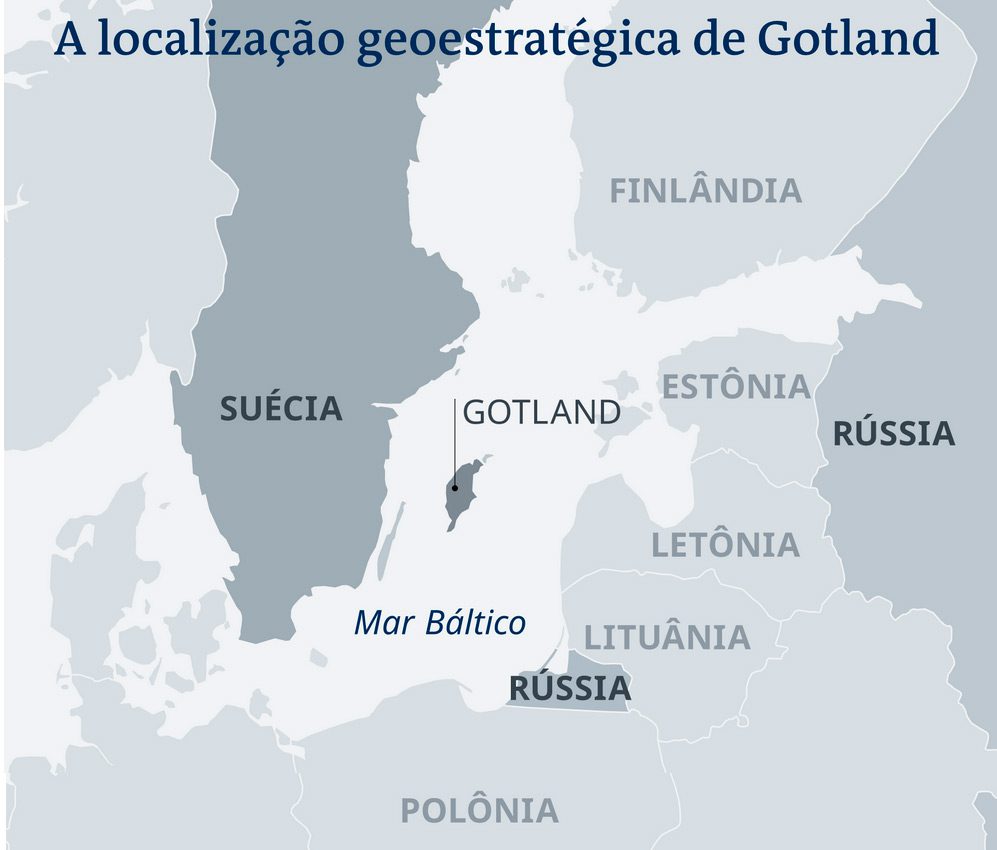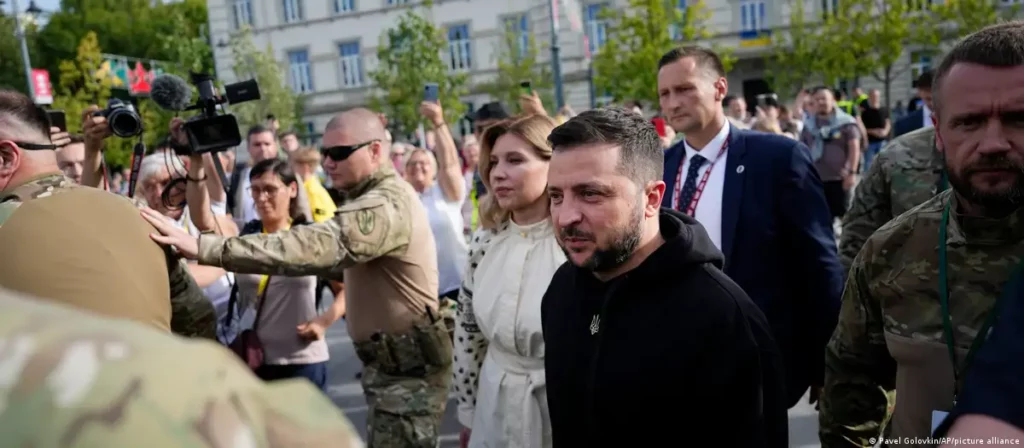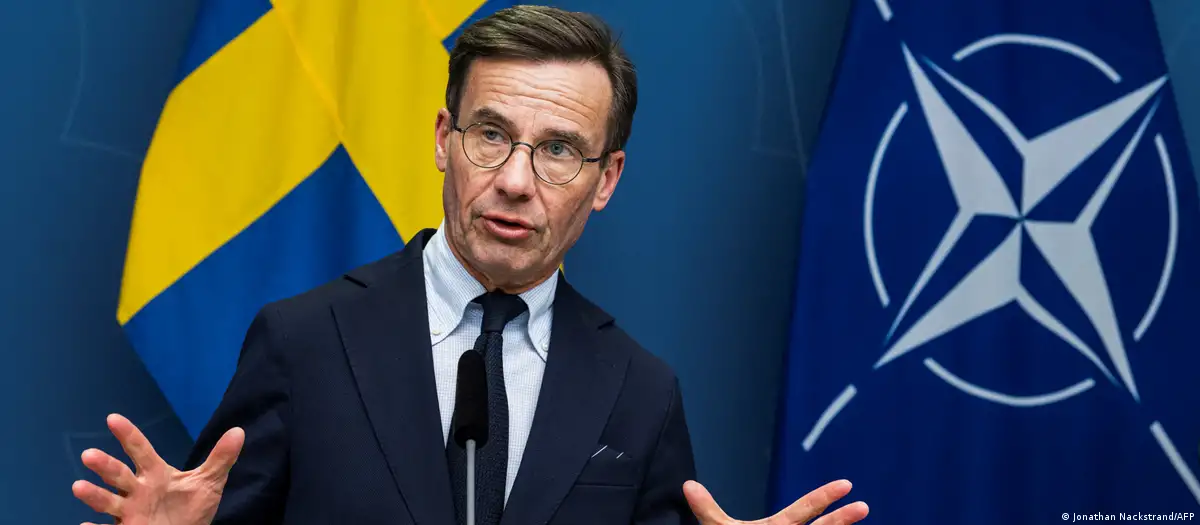The strategic country’s entry into the military alliance has been brought closer with the green light given by Turkey. Membership could also bring benefits for the protection of Swedes against possible attacks.
(DW) Last year, as tensions rose in Europe following Russia’s invasion of Ukraine, Sweden and Finland abandoned their historic military neutrality and applied to join the North Atlantic Treaty Organization (NATO) in May 2022.
While Finland’s process went faster and the country became NATO’s 31st member on April 4 this year, Sweden is still waiting for the go-ahead to join the group.
That’s because for a new member to be accepted, it needs the consent of all other countries in the alliance. And Turkey had been using its veto over Sweden and, like Hungary, blocking the Scandinavian country’s entry.
Ankara has accused Stockholm of being too benevolent towards the Kurdish activists it shelters on its territory, people the Turkish government classifies as “terrorists”.
But earlier this week, Turkish President Recep Tayyip Erdogan gave a positive nod to Stockholm and appears to have dropped his resistance. Now, Sweden’s membership looks possible for the first time. What’s in it for NATO and Sweden?
Geographical advantages
If Sweden becomes a NATO member, the entire Baltic Sea coast would be part of the alliance’s territory – with the exception of Russia’s coast and its Kaliningrad exclave.
In the event of a Russian attack, for example, it would be easier to defend the Baltic countries, which are already part of NATO. Troops and equipment could be sent to Estonia, Latvia and Lithuania via Sweden much more easily.
The Swedish island of Gotland also plays a special role. “With this large island in the middle of the Baltic Sea, Sweden has an extremely favorable strategic base. From there, you can control practically the entire Baltic Sea,” explains Simon Koschut, who holds the chair of international security policy at Zeppelin University in Friedrichshafen, Germany.
According to Koschut, the country’s geographical location is the main reason why Sweden’s membership in NATO would be so attractive.

What about the Swedish military?
Sweden’s armed forces and their military equipment would also be a valuable addition to NATO. The country is small – and therefore has a lean military. According to the Global Firepower Index, it consists of 38,000 people.
However, “the Swedes have a very modern army, in particular a modern air force of their own making,” Koschut explains.
The Swedish Gripen fighters, in fact, are the ones that were bought by Brazil in a deal closed in 2013 to renew the Brazilian Air Force fleet. The first aircraft of a batch of 36 fighters have already been delivered.
The Swedes are also a maritime power with submarines. And they have experience: they have already participated in some NATO missions, for example in Afghanistan.
Sweden spends about 1.3% of its Gross Domestic Product (GDP) on defense, significantly more than a few years ago, and this share is expected to continue growing in the coming years.
After the end of the Cold War, Sweden, like many Western countries, significantly reduced defense spending. However, with Russia’s invasion of Georgia in 2008 and then Moscow’s annexation of the Ukrainian region of Crimea in 2014, it began to rethink this strategy, especially after the war in Ukraine.
What would be the benefits for Sweden?
Sweden and NATO already work together in many ways. A decisive change for the Scandinavian country in the case of membership would be to be able to rely on Article 5 of the alliance’s treaty, which states that an armed attack against one NATO country is considered an attack against all. In that case, the military alliance pledges to provide assistance.
“It is clear that this protection is crucial for Sweden,” Koschut points out.
In addition, the Swedes would also be full members of the NATO Council, the alliance’s main decision-making body, and would have a veto – like Turkey, which has so far been using this premise to block the Scandinavian country’s membership.
Zelenski criticizes lack of deadline for Ukrainian NATO membership

Frustrating Ukrainian expectations, the Secretary General of the North Atlantic Treaty Organization (NATO), Jens Stoltenberg, announced on Tuesday (11/07) that the invitation to Ukraine to join the alliance will depend on the consent of the organization’s members and the fulfillment of some conditions.
The statement was made to journalists gathered in Vilnius, the capital of Lithuania, during the summit of the transatlantic organization. It mirrors the alliance’s official communiqué, which cites the country’s need to promote democratic and security sector reforms, but reinforces that “Ukraine’s future lies in NATO”.
“It is unprecedented nonsense that they have not set a timeline for Ukraine’s invitation and entry [into NATO],” Ukrainian President Volodimir Zelenski reacted on Twitter while still en route to the summit. “They include vague words about ‘conditions’ even to invite Ukraine. It seems there is no willingness either to invite Ukraine to NATO or to make it a member of the alliance.”
Zelenski is due to meet US President Joe Biden and other NATO leaders on Wednesday.
Complaining about being excluded from discussions, the Ukrainian president said his country “deserves respect” and suggested that NATO’s “uncertainty” allows Russia to interfere in that decision by using it as a bargaining chip in future peace talks.
Stoltenberg downplayed Zelenski’s criticism by arguing that other applications to the alliance have not followed a timeline either. “If you look at all the processes, there were no deadlines. They are condition-based processes, they always have been,” he said, stressing that this summit’s statement on Ukraine was NATO’s strongest political message to point the way to the country’s candidacy and signal the allies’ “concrete” and “enduring” support.
Still according to Stoltenberg, the most important thing now is to support the Ukrainians because, unless the country wins, “there is no membership to be discussed”.
Also on Tuesday, Zelenski spoke in a public square in Vilnius before an audience of Ukrainians and Lithuanians.
Ukraine’s membership divides NATO
Although Ukraine was promised entry into NATO in 2008 and many alliance members support the country militarily, there is no consensus among the 31 allies about admitting Kiev to the group.
While Baltic countries campaign for Ukraine, the US and Germany have urged caution. Biden has already expressed concern about the country’s governance situation and corruption, but there are also fears that Russia may perceive the expansion less as a deterrent to war and more as a provocation.
To ease and shorten Kiev’s accession process, however, NATO leaders have agreed to simplify it. Once the war is over, the country will be exempt from submitting a plan to demonstrate that it has carried out the military, economic and political reforms needed to join the military alliance.
Sweden’s entry into NATO sends a signal to the Kremlin
The Ukrainian case contrasts with the Swedish one: the Nordic country’s accession negotiations were concluded in a matter of days, and should, along with newcomer Finland, expand the alliance’s power in northern Europe.
The last obstacle to Sweden’s entry, Turkish President Recep Tayyip Erdogan cleared the way for the alliance’s expansion on the eve of the NATO summit. He is expected to be followed by Hungary, for whom the Swedes’ ratification is now just a “technical matter”.
Sweden is expected to occupy the 32nd seat of NATO in the fall.
For Stoltenberg, who brokered the negotiations with Erdogan, Sweden’s arrival in NATO shows that the invasion of Ukraine was a “big strategic mistake” by Vladimir Putin: “He went to war because he wanted less NATO, and now he will have more.”
“It seems that the Europeans do not understand their mistake,” reacted Kremlin spokesman Dmitry Peskov. He warned of the risks of speeding up the process of Ukraine’s entry into NATO. “It is very dangerous for European security, it carries very big risks.”
Germany to send new weapons to Ukraine
Also on Tuesday, Germany announced the shipment of more weapons to Ukraine worth 700 million euros. According to the German Ministry of Economy, 3.9 billion euros have been earmarked for military support to Ukraine until June 2023, making Germany the country’s second largest ally behind the US.
Another announcement made at the summit is that NATO training offered to Ukrainian pilots to handle F-16 fighter jets will begin in August in Romania. Eleven countries support the action, led by Denmark and the Netherlands.
ra (AP, Reuters, dpa, EFE) *** Translated by the DEFCONPress FYI Team ***
